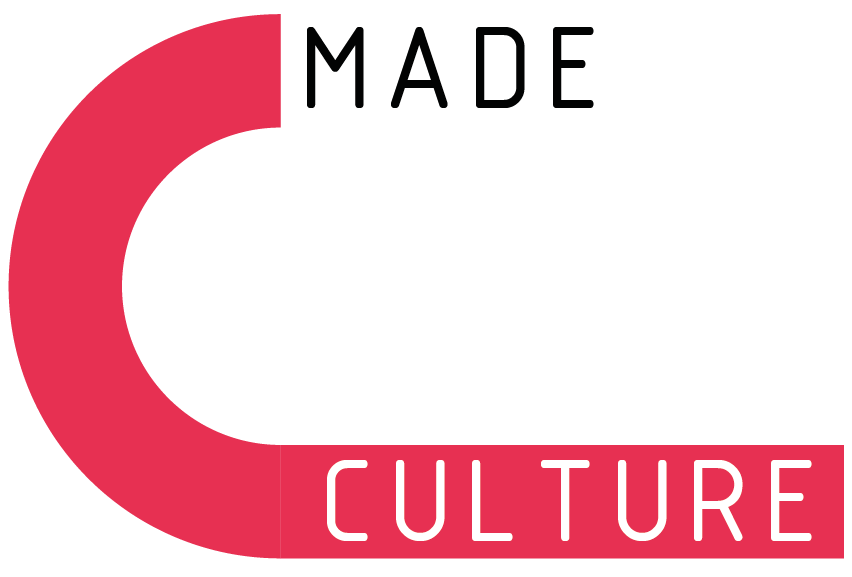DISCOVERING THE LAGOS MAKERS’ COMMUNITY
Hi there. I’m Osas and this is my first blog post. I am an intern at Made Culture, a design consultancy that is equipping Africans with context-specific tools which enable them to work smarter and live better. Prior to this internship, I was a freelance graphic designer and photographer, and I also created packaging boxes for a perfuming company based in Lagos. Upon joining Made Culture, my first project was focused on the Makers Community in Nigeria which I was unknowingly a part of.
I was privileged to participate in a series of three meetups for makers in Lagos which recently concluded. The program was themed “The Ecosystem Meet Up Series” and was facilitated by Made Culture in collaboration with Co-Creation Hub, GIZ and MakeIT-Africa.
The first meetup took place at the Co-Creation Hub in Yaba where I heard about the makers’ community for the first time and, met a bunch of manufacturers, product designers, architects and other creative practitioners at the workshop. Initially, I was nervous, until I participated in the first group exercise which was an icebreaker. I realized the effectiveness of this methodology utilized by Made Culture in getting people to open up which helped me share my opinions more freely.
The four key speakers at the first meetup were Ugo Okafor, Tosin Oshinowo, Jude Abalaka, and Funfere Koroye. Their insightful presentations made me understand that hard work is good but it is also necessary to work smart. The evolution of technology in the manufacturing industry has made it possible for handy people like myself to actualize our visions in the most detailed form. I learned that the significance of having a makers’ community here in Nigeria is to promote DIY culture, support entrepreneurship and eventually boost the GDP of our economy. Growing up with a DIY attitude, it was really easy for me to key into the vision of having a sustainable makers’ community in Nigeria.
Technologies like the CNC machine, laser cutters, and 3D printers have paved the way for more innovative methods of designing and manufacturing products. I was particularly inspired by Tosin Oshinowo and Funfere Koroye’s presentations. Tosin is an architect and the founder of Ile-Ila, a conservative furniture company, and Funfere is a product designer, whose products are designed specifically to solve problems in Africa.
The principal director of Made Culture, Malaika Toyo, facilitated the second meetup. She taught a crash course on the design thinking process. I learned that the process for human-centred design thinking is to first “empathize” as it is important to understand how the users really feel. The next step is to “define” the users’ needs. The third step is “ideate” i.e. brainstorm and develop many ideas. This is followed by the “prototype” step and finally the phase of “testing” the proposed solutions again and again in order to develop sustainable design-led solutions. I was also engaged in a human-centred design thinking exercise. We were grouped in pairs and it concluded with us designing what we deduced as the ideal wallet for our partners.
The third and final meetup was integral to the Ecosystem meetup series. Understanding the human-centred design thinking process and using this process to develop ideas is very good. However, these ideas won't fund themselves, right? So it equally is important for product designers, service providers and entrepreneurs to be able to pitch their ideas properly. I learned that a good pitch is concise. Another noteworthy takeaway was that elements of a well-developed pitch include a “real problem” the ideas to solve, a target audience, a solution to the identified problem, how it works, its market opportunity and its traction.
The Executive Secretary of Lagos State Employment Trust Fund (LSETF) Mr Akin Oyebode and the Group Head, Micro Enterprises of BOI, Mrs Uloma Ike spoke to us about how business owners and entrepreneurs can acquire financial assistance from the government and the Bank of Industry. Demilade represented GE Lagos Garage at the meetup and spoke about the incubation programs conducted by their organization. I have attached all useful links at the bottom of this page.
I would like to wrap up with a quote from Damilola Teidi, Director of Incubation, Co-Creation Hub. According to her, “a healthy mentor-mentee relationship is essential for personal development and the general growth of the community”. It's been a very insightful experience learning about the makers’ community and the human-centered design process. I have also found a mentor in my boss and the founder of Made Culture, Malaika To yo. She is hardworking, charismatic, a good teacher and is very fun to be around. Working for Made Culture has definitely helped me on my path to self-discovery.
For mentorship and incubation programs visit:
Find out more about Made Culture!
